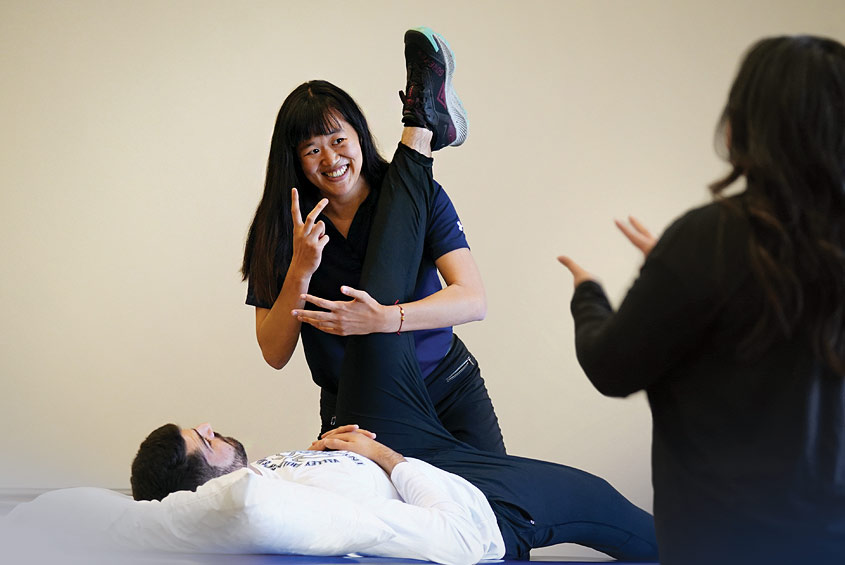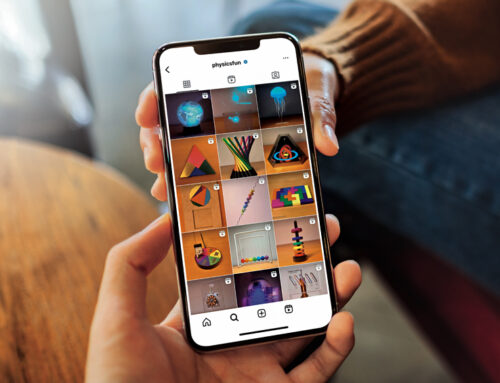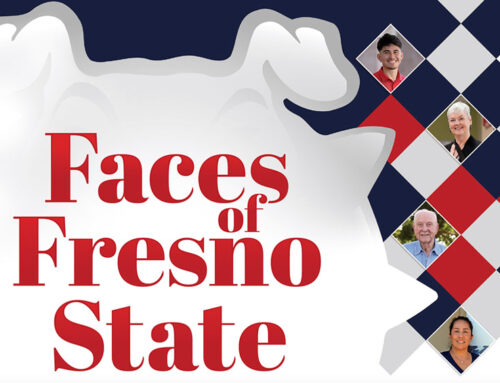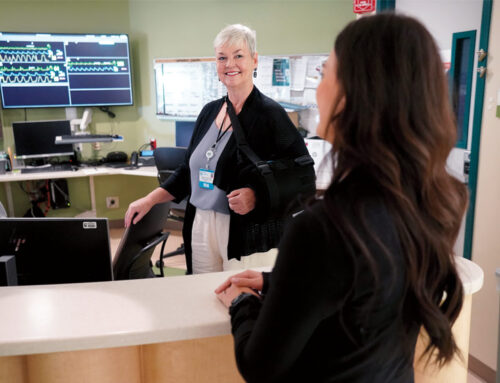First Sign of Success
An inspiring tale of one student’s path to earning a doctoral degree
By Melissa Tav | Photos by Cary Edmondson
Erin Ruiz and Dianna Clayton have attended hundreds of hours of physical therapy classes, clinics and even a complex cadaver and anatomy lab during the past three years — but they’re not the ones who just graduated with a doctoral degree. That would be Qiaofei Catherine Obrero, who, in May, became the first Deaf graduate in the program’s history.
As two of her American Sign Language interpreters, Ruiz and Clayton were by Obrero’s side through every lecture, evaluation, shoulder rotation and knee bend en route to her doctoral of physical therapy degree.
“We have all been on this doctoral journey together,” Obrero says. “I don’t think I would have had the confidence or growth I have now had it not been for the immense support of my interpreters and the many doors they opened for me.”
Throughout the three-year doctoral program, Ruiz and Clayton worked directly with Obrero for six to nine hours most days, and even on occasional weekends. They say it was inspiring to see what Obrero accomplished at the University.
“It’s been really special to witness how much Qiaofei has grown from our initial meeting when she first started at Fresno State to where she is now,” Clayton says. “As an interpreter, you get to see a lot of moments that others don’t, from their victories to their disappointments. With Qiaofei, I saw her through all of these moments and watched how much she flourished in the field.”
Redefining Health Care
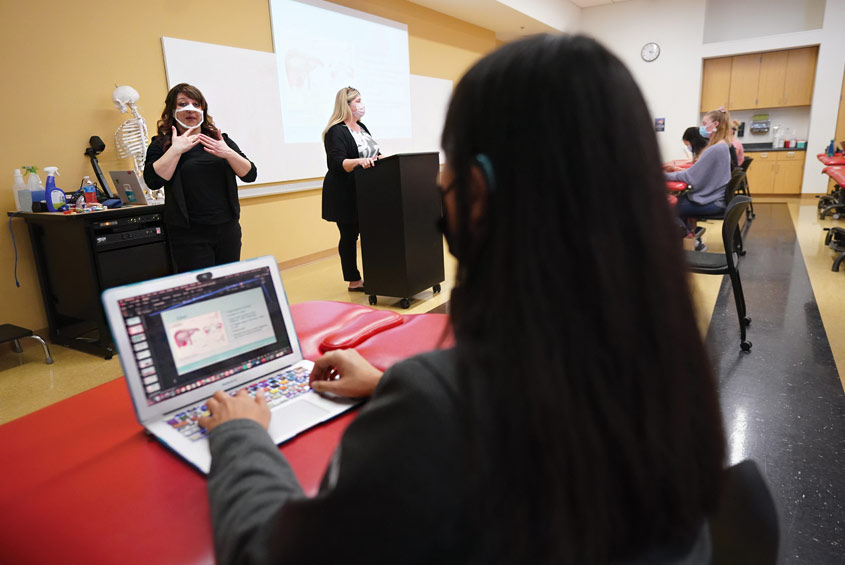
Dianna Clayton (top left) served as one of the primary American Sign Language interpreters for Qiaofei Catherine Obrero while she pursued her doctoral degree. Obrero credits her interpreters for being by her side for lectures, labs and patient evaluations throughout her time as a student.
Born in the Zhejiang Province of China, Obrero was adopted as a toddler by Leo and Patty Obrero, who raised her and her siblings in Reedley. At a young age, Qiaofei (pronounced Ch-yow-fay) Obrero experienced hearing loss that got progressively worse over time, ultimately leading to complete deafness in one ear and severe deafness in the other.
Throughout her life, Obrero relied on hearing aids and a cochlear implant to hear, and lip reading and visual cues to communicate. She did not learn American Sign Language until she attended community college.
Despite her challenges, Obrero aspired toward a career in health care. As a child, she recalls her parents encouraging words and gentle reminders that a career in health care was possible, but might not come easy.
Obrero experienced this firsthand and remembers hospital visits where interpreters were either inaccessible or difficult to find. As the patient, she realized early on how important communication and language access in the medical field truly is.
“My drive to pursue a career in physical therapy comes from the natural belief that no person should have to walk into a doctor’s office and wonder if they will have issues with communication or language access,” Obrero says. “After all, everyone deserves to understand their own health needs.”
While observing hours at a local physical therapy clinic, Obrero had the opportunity to work with a Deaf child. Although they were years apart, their ability to communicate via sign language forged a momentary bond between them that no one else understood. For Obrero, that life-changing moment — as well as the ability to work with patients one on one in a close, intimate setting — affirmed her passion for the physical therapy profession.
A Campus that Cares
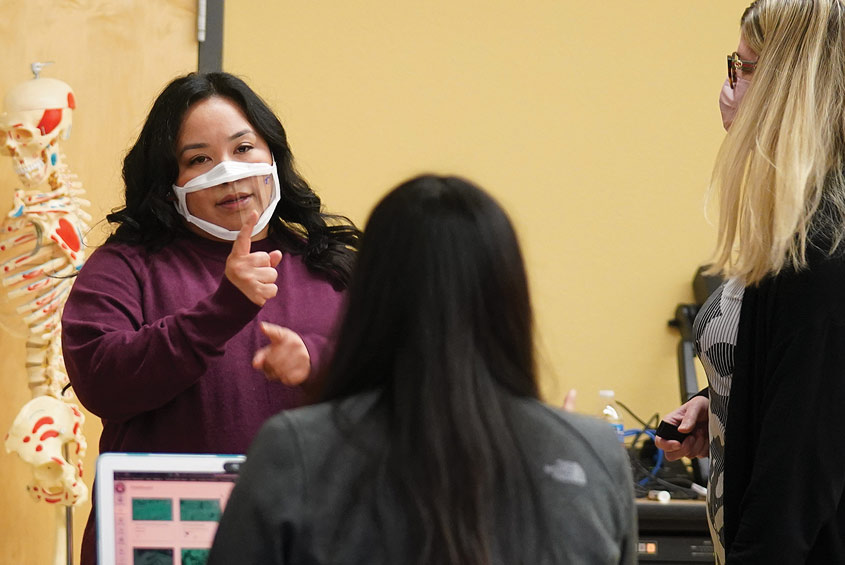
American Sign Language interpreter Erin Ruiz is dedicated to helping Fresno State’s Deaf and hard of hearing students like Qiaofei Catherine Obrero get the necessary services to excel on campus while preparing for their professional careers.
When Obrero first arrived on the Fresno State campus in fall 2015, she was taken aback by the amount of support she received. Prior to Fresno State, Obrero attended a college in Oregon and says she did not receive the proper accommodations needed for her to learn effectively. Without access to interpreters, Obrero had to study even harder just to keep up with her classmates. Eventually, she decided to move closer to home, and she says it’s one of the best decisions she has made.
At Fresno State, Obrero utilized interpreting and captioning services offered through the Services for Students with Disabilities center on campus. These services were essential in her pursuit of her bachelor’s degree in kinesiology (exercise science), and later as she excelled in her doctoral program.
The on-campus center works to cultivate a community that is inclusive of students with disabilities by providing equal opportunities for academic success. It ensures students, like Obrero, receive individualized care according to their specific needs.
“In our center, we really like to emphasize open communication and collaboration with our students,” says Jennie Johnson, director of Services for Students with Disabilities at Fresno State. “They need to know their voices are important when determining reasonable accommodations. For Qiaofei, we collaborated with faculty from the physical therapy program to ensure we had the right accommodations in place for her. The more open communication and collaboration we have, the easier it is to ensure access for our students.”
Obrero was among 23 students on campus who required sign language interpreting services, as well as real-time captioning. Ruiz and Clayton were two of Obrero’s five core interpreters during her time at Fresno State.
Clayton is the lead interpreter and communications coordinator on campus. Her role is to ensure students’ accommodations are met in accordance with communication accessibility. She works closely with Ruiz, who is the lead interpreter for the Office of Innovation and Digital Excellence for Academic Success. Ruiz coordinates interpreting services for faculty and staff, but also served as Obrero’s interpreter.
A Doctoral Journey
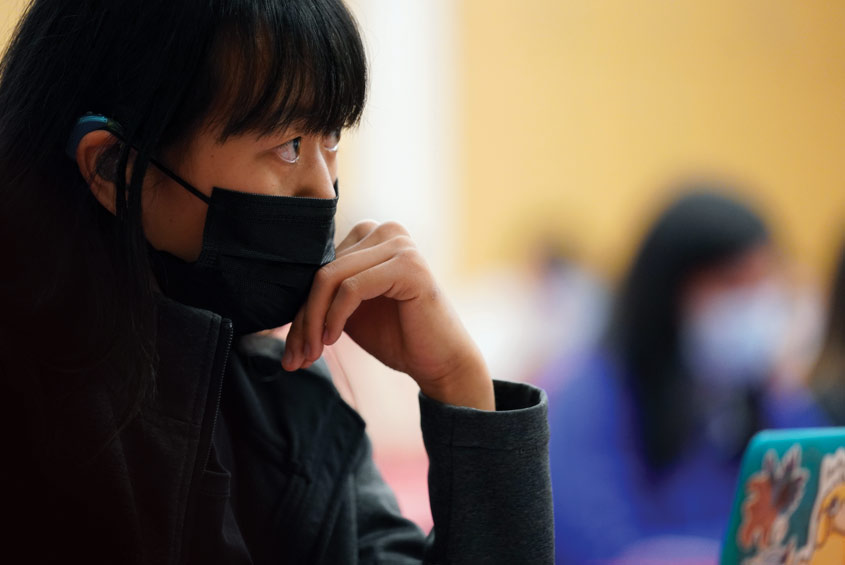
Together, they have long, but fulfilling days in their roles. A typical day for Ruiz or Clayton (oftentimes, both) included attending physical therapy classes, labs or clinical placements with Obrero, which ranged from one to three hours at a time. Because of the mental and physical toll of the role, it often required two interpreters accompany Obrero.
As interpreters, Ruiz and Clayton got an inside lens into the challenging three-year doctoral program — and even learned a thing or two themselves.
Other than a professor teaching five days a week, there may not be anyone on campus who has attended as many classes as Obrero’s interpreters.
“You only retain probably about 30% of what you interpret if you’re really paying attention,” Ruiz says with a laugh. “However, Qiaofei taught us a lot. She was very patient at the beginning of her program since we had to learn anatomy and about different techniques and terminology. She would teach us before or after class what things meant, which was really helpful. Being part of her college experience was such an honor.”
Clayton and Ruiz both earned their bachelor’s degrees in interpreting from Fresno State, and soon after graduating in 2008 began working as interpreters for the University. At most campus events, the two of them can be seen at the front of the room, their hands moving quickly and swiftly. In essence, they are the line of communication for those who can’t hear. But according to Obrero, they are more than that.
The trio built a close relationship outside of the classroom, spending time together and with others from the local Deaf community.
When asked why the center has been so impactful to her, Obrero takes a deep breath and thinks carefully about her answer.
“Services for Students with Disabilities has been my safe place,” Obrero says. “They have stepped in and advocated for me, and helped me navigate challenging situations. The immense support I received was a deciding factor on why I wanted to stay here for the Doctor of Physical Therapy program.”
Honoring Home
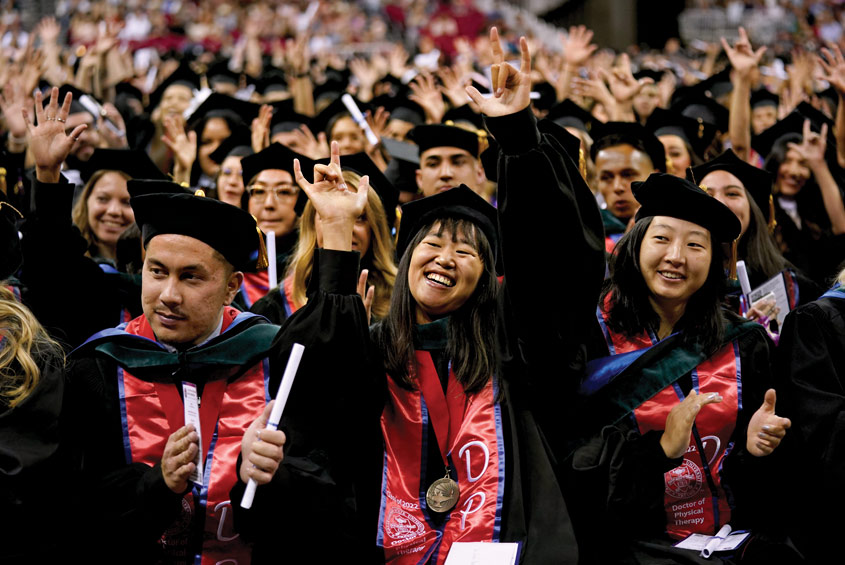
According to the National Deaf Center on Postsecondary Outcomes, there are about 9,600 Deaf individuals, ages 18 through 49, who have earned a doctorate degree in the U.S. For doctorate degrees specifically in health care, that number is even slimmer. Of the 750 Deaf individuals working as physical therapists, 198 have a doctoral degree.
750 Deaf individuals work in the U.S. as physical therapists ONLY 198 Have a doctoral degree
“Qiaofei had to work twice as hard to process information, but her desire to achieve her doctorate was worth all the obstacles she faced,” says Dr. Jenna Sawdon-Bea, chair of the Department of Physical Therapy at Fresno State. “Qiaofei not only brings a very unique set of skills to the physical therapy profession, but an awareness and understanding about Deaf culture that is much needed in this field.”
For Obrero, Fresno State will always be the place that gave her a profound sense of identity. She considers the tight-knit campus her home.
Obrero says earning her doctorate is a special way to honor her family in the U.S. who provided her limitless possibilities, and also her birth family in China, whom she reconnected with in 2018.
Obrero has vivid memories of watching her birth mother suffer from chronic neck pain, the result of carrying wood she had to sell as a child. Obrero’s greatest hope is to one day return to her birth family’s village, this time as a licensed physical therapist, to help her family and residents, as well as children at the orphanage where she spent her earliest years of life.
But, for now, she plans to stay and serve local.
“I’m excited for what’s next and to see what other doors open up,” Obrero says. “The Central Valley has given me so much in terms of community and connections, and I can’t wait to give back.”
As for her interpreters, a smile forms on Obrero’s face as she says, “I wish they could come with me — but I know we’ll always be connected.”
— Melissa Tav is a communications specialist in the College of Health and Human Services at Fresno State.
Give to Fresno State
To support dedicated students like Qiaofei Catherine Obrero, as well as Deaf education at Fresno State, visit https://bit.ly/magazinegive, or mail a check payable to Fresno State Foundation, to:
California State University, Fresno
5200 N. Barton Ave., ML49
Fresno, CA 93740-8023

